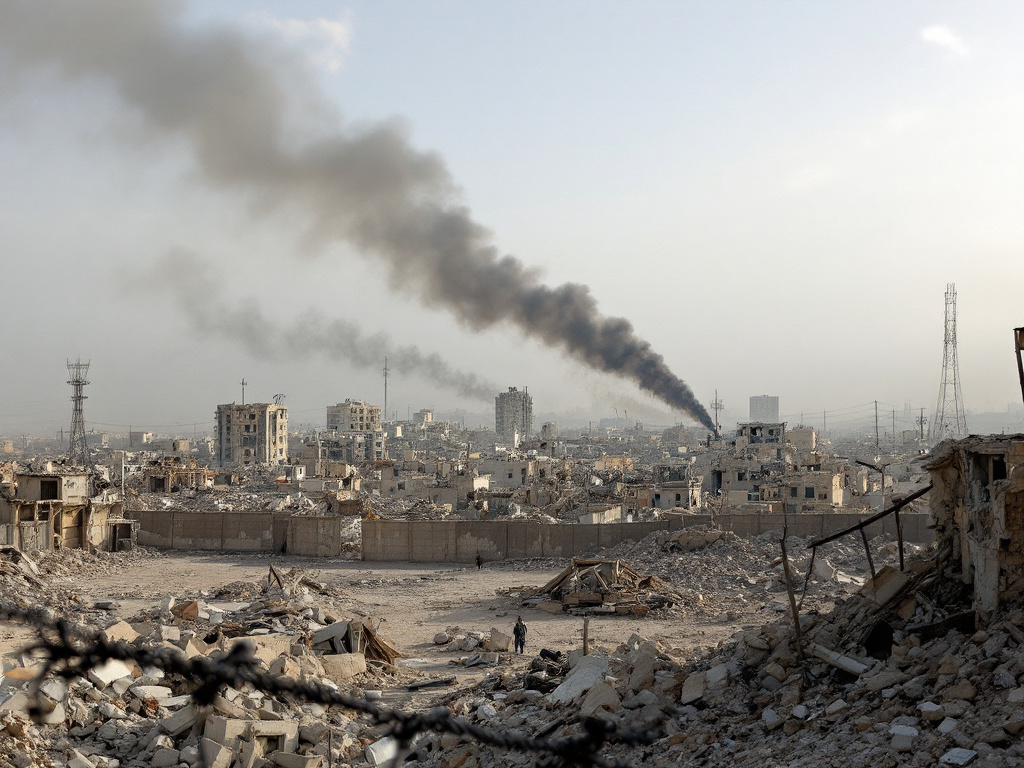Articles in this Cluster
17-04-2025
Israeli Defense Minister Israel Katz has stated that Israeli troops will remain in "security zones" in Gaza even after the war ends, citing the need to protect Israeli communities. The zones, which have been established by seizing large areas of Gaza, currently cover tens of percent of the territory. Katz also announced that Israel will maintain its blockade of humanitarian aid to pressure Hamas to release hostages, despite warnings from the UN of "devastating" consequences. The conflict has resulted in significant humanitarian crises, with over 1,650 people killed since the war resumed on March 18, and 500,000 newly displaced or uprooted. Hamas has rejected Israeli proposals for a ceasefire, insisting that Israeli forces must withdraw from Gaza under any permanent agreement.
17-04-2025
Hamas has rejected Israel's latest ceasefire proposal, which included a 45-day ceasefire and the return of humanitarian aid in exchange for 11 hostages and the disarmament of Hamas. Hamas leader Abu Zuhri stated that disarming is a "million red lines" and not subject to consideration. The proposal's failure was not a surprise to mediators, who were skeptical due to the lack of withdrawal terms and the demand for Hamas to relinquish its arms. Israel has continued its military operations in Gaza, capturing more territory and creating a buffer zone, with the goal of exerting pressure on Hamas to release the remaining hostages.
17-04-2025
The Israel Defense Forces (IDF) killed a top Hamas commander, Muhammad al-‘Ajlah, in a "precise strike" on Sunday. Al-‘Ajlah was the commander of Hamas' Shejaiya battalion, responsible for arming terrorists with weapons used to attack Israeli civilians and IDF troops. He was the fifth commander of the Shejaiya battalion to be eliminated since the beginning of the war and the third since renewed operations in Gaza. The strike came after a two-month ceasefire ended on March 18, with talks in Cairo to restore the ceasefire and free Israeli hostages ending without a breakthrough.
17-04-2025
Israeli Defence Minister Israel Katz has stated that Israeli troops will remain in "security zones" in Gaza, Lebanon, and Syria indefinitely. Katz said that the military will continue to occupy areas it has seized as a buffer between Israeli communities and enemies. The comments come as Israel has taken control of over half of the Gaza Strip, refused to withdraw from some areas in Lebanon, and seized a buffer zone in southern Syria. The decision may complicate talks with Hamas over a ceasefire and the release of hostages, with 59 hostages still held in Gaza, 24 of whom are believed to be alive.
17-04-2025
Hundreds of people in Gaza are trapped under rubble after Israeli strikes, with many dying slow deaths due to a lack of heavy rescue equipment. The Israeli Defence Forces (IDF) are not allowing heavy equipment, such as diggers and bulldozers, into Gaza, citing concerns it could fall into Hamas's hands. Rescue teams are struggling to save those trapped with rudimentary equipment, and efforts have been halted at times due to ongoing IDF operations. Salah Jundia, a survivor of an attack that killed 12 of his children and three other family members, made a desperate video appeal for help, but his uncle's last phone call from under the rubble went dead after 25 seconds, leaving uncertainty about his fate.
